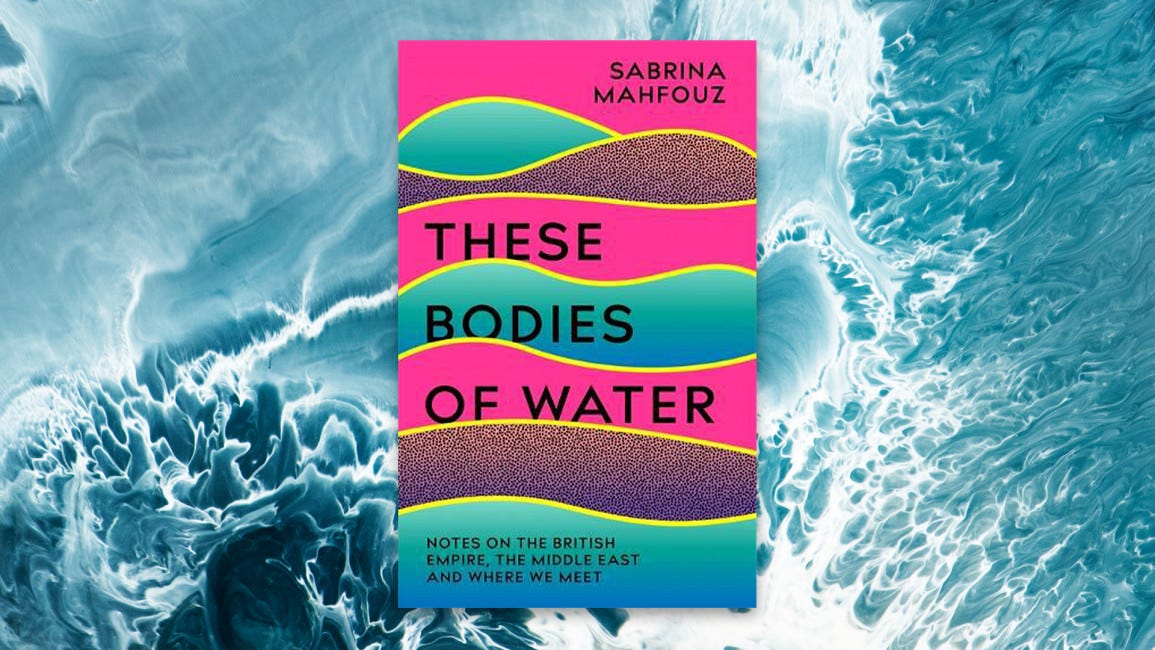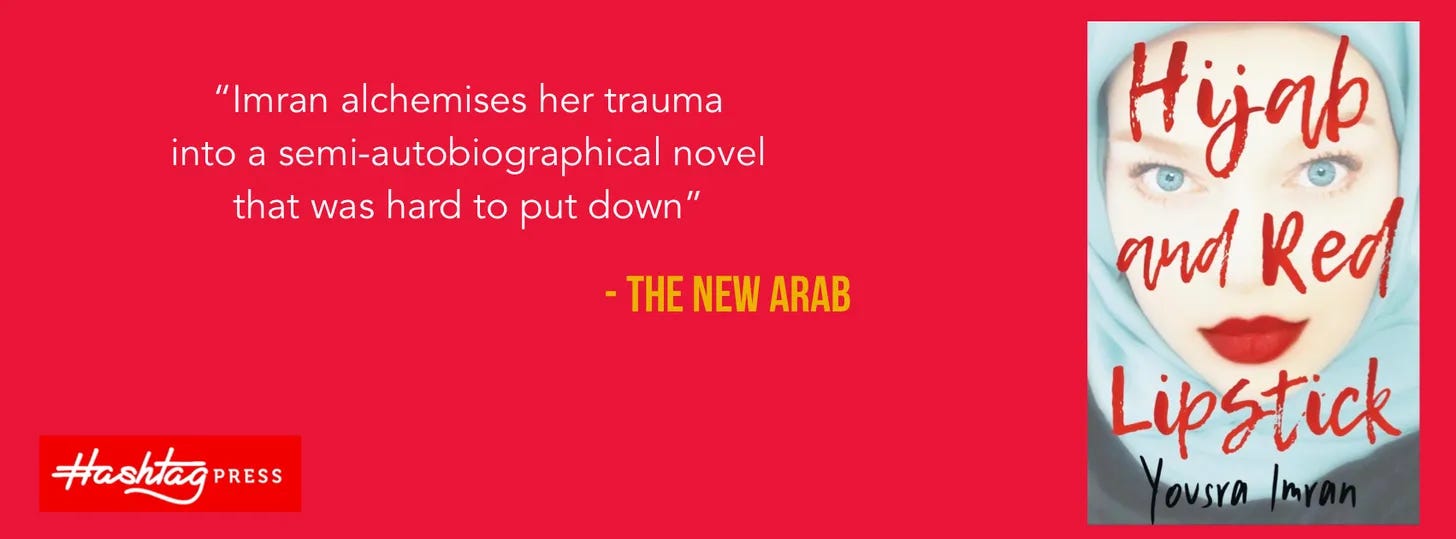Welcome to ‘Eyb, my newsletter in which I write frankly about topics that growing up as a young Arab woman I would be told were shameful or ‘eyb. I also share my crazy life anecdotes, as well as what I have been writing, reading, listening to, and watching.
If you have recently subscribed, a double welcome to you!
So the World Cup 2022 is quickly approaching, and this time it is taking place in Qatar, the small Gulf Emirate I used to live in between the ages of 14 and 29, what I would say are the most formative years in a woman’s life.
There’s a fair bit of Qatar-bashing going on in certain European news outlets, and many Arabs are saying it is because European countries are not happy that an Arab country is hosting the World Cup. I am sure there is some truth to it, although these same countries (Britain, France) are Qatar’s allies and Qatar has invested billions of dollars in these countries, not to mention the billions it has spent in purchasing military equipment from them.
For many of us who do not have an agenda, we are aware of the Gulf country’s poor human rights record, failure to tackle modern slavery, and prevailing guardianship laws.
I have written and spoken about the guardianship system many times now. I wrote a piece for gal-dem on how Britney Spears’ conservatorship was similar to the guardianship system in Qatar, and I recently wrote an op-ed for The New Arab in which I argued that guardianship laws in the Gulf have nothing to do with Islam and are in fact redundant laws.
I also wrote a book based on my experiences there, and how the guardianship system enables men to abuse their authority and perpetuate domestic violence, sexual abuse, and controlling and coercive behaviour - Hijab and Red Lipstick (Hashtag Press).
I suffered as a teenage girl and young woman due to these guardianship laws, and my female Qatari and other Arab girlfriends and peers continue to suffer as the guardianship system has gone nowhere. As I wrote in my op-ed for The New Arab, I believe that Qatar has a lack of understanding of what women’s rights actually are, as well as true emancipation and empowerment of women.
After all, what good is it having female ministers, female ambassadors, and female CEOs if they all need a male guardian’s permission first before they can work in those roles?
So for those of you who have never heard of the guardianship system, let’s talk about it.
As a woman in Qatar, unless you are a single female expat who has come to the country on a company visa (and hence the company is your sponsor), you will always be under the guardianship of a mahram male relative, (a mahram is a man you cannot marry), as long as you are alive.
Your guardian at birth is your father, and if he passes away it is your grandfather, brother, or uncle. This could even be a younger brother - imagine having your life under the authority of a brother who may be much younger than you in age. When you get married, your husband becomes your new guardian, and if you never get married, you will continue to be under the guardianship of a male family member.
This affects your freedom of movement and major life decisions because you are unable to do certain things without the sign-off of your male guardian - it affects expat women like me too who are under the sponsorship of a father, brother, or husband, as we need “letters of no objection” before we can do certain things too.
This includes working (no permission, no work permit - no work permit means it is illegal for you to work), travel (in the case of Qatari women), enrolling at university and studying abroad, getting married, and getting divorced. A woman cannot be the primary guardian of her children.
The only way in which expat women like myself were better off was that we did not need a male guardian’s permission to travel, however our male guardian could place a travel ban on us without our knowledge if they wanted to, stopping us from travelling - I have experience of this myself.
The country also does not offer reproductive healthcare to single women. I used to get gynecological treatment at private clinics as I was fortunate enough to have private health insurance, and I would lie to the doctors and say I was married or divorced.
Qatar is saying it will extend reproductive healthcare to any single female fan who needs it during the World Cup, which I can’t help but feel is hypocritical since it does not make the same exception for women currently living there. Their thinking is if they did so that it would promote sex outside of marriage, which is illegal there.
A husband’s permission is required before a doctor will prescribe contraception or fit an IUD or carry out surgical sterilization (I witnessed this for myself when my mum required an IUD re-fitting and later when she needed her fallopian tubes removing).
For those in the country who say that the guardianship system does not affect them, it is because they fail to recognize their own privilege - that they have “liberal” fathers or husbands who give them permission without hesitation, or that they come from wealthy, well-reputed “city-dwelling” tribes who tend to allow their daughters to travel, study abroad, drive, work etc.
For those Qatari and Arab women from Bedouin tribes, from more conservative families, and from working-class families, their freedom of choice and movement is very much restricted - and I have witnessed both ends of the spectrum as a student at Qatar University, as an ESOL teacher, and later on as a personal trainer/fitness instructor.
In Qatar’s 2006 Family Law, it explicitly states in Article 58 that a woman has to obey her husband by law, as well as take care of the housework and breastfeed any children. There are still no laws in the penal code criminalizing domestic violence. There is a severe lack of data when it comes to the prevalence of domestic violence and sexual violence in the country.
The only study I have ever come across was made by Qatar University Social Work Professor, Dr. Kaltham Al Ghanim, who carried out a study while I was a student there. I actually remember filling out the survey. Her paper concluded that over a quarter of female students had experienced some form of domestic violence. You can find her paper here.
The most comprehensive report on the guardianship system in Qatar and how it affects women is Human Rights Watch’s 2021 report, which you can find here.
Some people ask me, why do I care so much if I no longer live there and are no longer subjected to these laws?
I may no longer live there but I do want to raise awareness about this discriminatory system which prevents Gulf states from achieving true empowerment and emancipation of women. My friends and peers are still there, and due to censorship in the press, and a lack of freedom of speech, their stories and realities do not leave the country. Those who speak up are forcibly disappeared. Those who manage to talk to foreign journalists and activists only do so under the condition of anonymity.
The Gulf region cannot say there are women’s rights until they abolish the guardianship system completely. A woman should have complete agency over her life, her decisions, and her freedom of movement. Being highly educated or being given leadership roles are all very well and positive, but they are not indicators of women’s rights.
What I have been writing…
Image by The New Arab
I interviewed British Egyptian playwright, performer, poet, and writer Sabrina Mahfouz about her recently published book, These Bodies of Water, for The New Arab. Part-memoir, part-spoken word, and part polemic, These Bodies of Water takes you on a journey around the Arab World and delves into the history of British imperialism in the region, and how water as a geopolitical resource drove British foreign policy. I learned SO MUCH from this book! Read my feature here.
What I have been reading…
An essential read on something that many in the global Muslim community are worried about right now - Andrew Tate taking a keen interest in Islam as a way of increasing his fanbase with alt-right Muslim men and impressionable male Muslim youth. Read Is Andrew Tate using Islam to rehabilitate his tattered reputation by political commentator and human rights activist, Aisha-Ali Khan.
A vital read by journalist Nadeine Asbali on why French actresses cutting their hair is a performative action, and if you are to stand in solidarity with Iranian women and their choice to remove the hijab, you must stand in solidarity with all women, including those who are fighting for the right in Europe to wear it. Read White actresses cutting inches off their hair isn’t the solidarity Iran’s women need.
Loved Danny Hajjar’s feature on Somali-UAE rapper Freek, and the challenges of being taken seriously as a black music artist in the Gulf region. Read Starting a new story for Black artists in the Gulf: Somali-UAE rapper Freek mashes up the beat, Arab style.
Finally, if you enjoy my work and want to support me, consider buying a copy of my semi-autobiographical novel, Hijab and Red Lipstick, published by Hashtag Press.
Longlisted for The Diverse Book Awards 2021, Hijab and Red Lipstick is a rare insight into what life is like as a young Arab woman growing up in the Arab Gulf. Find it on Amazon, Waterstones, Blackwells, and worldwide on the Book Depository.





